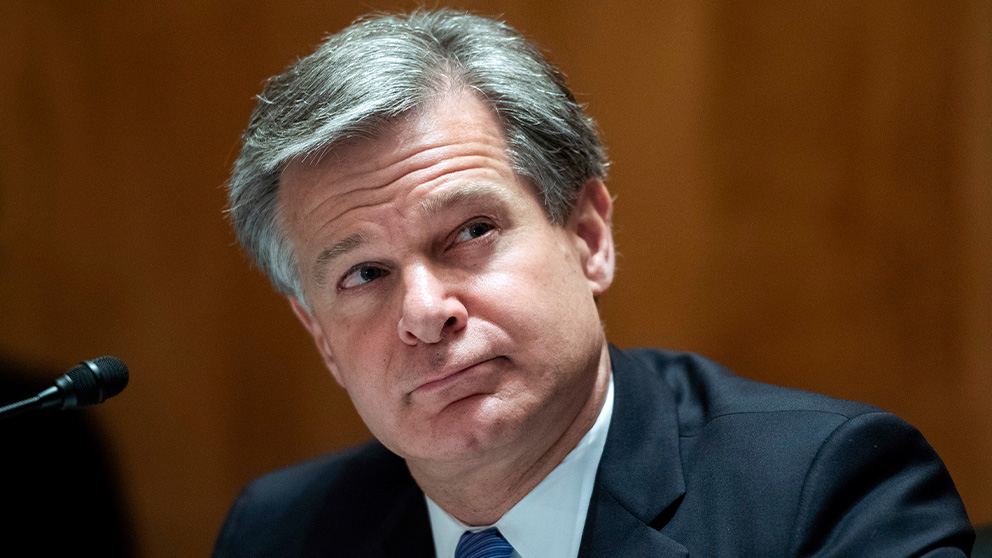Recent allegations from a former FBI agent have raised serious questions about the bureau’s impartiality, specifically under the leadership of Director Christopher Wray. The whistleblower, Kyle Seraphin, has accused the FBI of politically motivated practices, claiming the agency unjustly targeted conservative Americans as if they were domestic terrorists.
Allegations of Political Bias
Kyle Seraphin, who worked in the FBI’s counterterrorism division, has alleged that the agency misused its resources to investigate conservative individuals and organizations without credible threats. According to Seraphin, the FBI’s leadership prioritized investigations based on political ideology rather than evidence, creating a chilling effect on free speech and political expression.
Seraphin further claimed that the bureau was more interested in pursuing politically charged cases that aligned with certain narratives. “This isn’t about justice; it’s about politics,” Seraphin asserted, emphasizing that the agency’s actions strayed from its core mission of protecting national security.
FBI Oversight of January 6 Informants
The allegations come in the wake of a report from the Department of Justice\’s Office of the Inspector General, which revealed that the FBI had 26 confidential informants embedded within groups involved in the January 6, 2021, Capitol riots. Many of these informants reportedly engaged in illegal activities themselves, raising questions about the bureau’s oversight and operational decisions.
While the report found no evidence that FBI agents incited violence during the riots, it did highlight failures in the agency’s pre-riot intelligence gathering. For example, the FBI’s canvassing of field offices to assess potential threats ahead of the January 6 event was poorly documented and inaccurately reported to Congress.
Inspector General\’s Recommendations
The DOJ’s watchdog report recommended that the FBI improve its policies and procedures for handling security threats and confidential sources. The report underscored the need for greater transparency and accountability, particularly when dealing with politically sensitive cases.
In response, the FBI has stated that it is committed to implementing these recommendations. The agency reiterated its dedication to protecting constitutional rights while maintaining national security.
Public and Political Reactions
The revelations have reignited public debate about the FBI’s neutrality in addressing domestic threats. Critics argue that the bureau has become increasingly politicized, undermining public trust in its ability to operate impartially. Calls for reform, including increased congressional oversight, have grown louder in the wake of these allegations.
Meanwhile, supporters of the FBI emphasize the challenges of balancing national security with civil liberties. They point out that the agency operates in a highly polarized environment, where its actions are often scrutinized through a partisan lens.
As the FBI faces mounting criticism over its handling of politically sensitive investigations, its leadership will need to navigate an increasingly fraught landscape. Transparency, accountability, and adherence to constitutional principles are likely to remain at the forefront of public and congressional demands for reform.
Sources
- FBI had 26 informants at Jan. 6 Capitol riots – and most were involved, bombshell DOJ report confirms
- Watchdog finds FBI intelligence missteps before Jan. 6 riot, but no undercover agents were present
- Security clearance is restored for ex-FBI employee who testified on politicization claims

